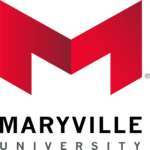Becoming an accountant—especially a certified public accountant (CPA)—can be a particularly expensive feat. Not only do accounting students have to complete extra credit hours for CPA eligibility, but they also often have to shell out tens of thousands of dollars on top of what they spent on their bachelor’s degree to complete a master’s degree in accounting and the CPA exam.
In the U.S., the average cost of a four-year college degree at a public university is about $25,000 per year, or $100,000 total, according to the Education Data Initiative. And private school is even more expensive. A bachelor’s degree typically requires 120 credit hours to complete, but CPA accreditation requires 150 hours. This means that students who have the goal of becoming a CPA often must complete an extra year of school, typically through a master’s in accounting degree program.
One barrier of entry to becoming a CPA is the cost and time to prepare for the licensure exam, which an accountant must pass in order to become a certified public accountant. About 13% of people who plan to become a CPA say that the overall cost of obtaining additional 30 credit hours is a challenge for them, according to a study by the Illinois CPA Society. The study does recognize, however, that CPAs have other, more pressing concerns including workload and the exam itself.
Due to costs and other factors, there’s a declining number of accounting professionals, and the U.S. Bureau of Labor Statistics projects there will be 136,000-plus open accounting and auditing positions each year until 2031. Despite the challenges related to becoming a CPA, accountants can still see a solid return on investment. The average base salary for CPAs in the U.S. is about $90,000, according to Indeed, though these workers can make nearly $150,000—nearly three times the average U.S. salary.
“Earning the CPA credential has historically been one of the most notable ways to establish a professional identity and exhibit a high level of competence in the accounting profession,” Todd M. Shapiro, president and CEO of the Illinois CPA Society, wrote in the study. “Yet, we are witnessing a nationwide decline in not just new CPAs but also accounting program enrollments.”
However, most of the online master’s in accounting programs ranked by Fortune are showing a steady enrollment rate, according to data gathered by Fortune.
No matter how you slice it, though, earning a CPA will still require additional schooling. Fortune has rounded up a list of three schools with affordable online master’s in accounting programs, each of which cost about $25,000 and less.
University of Massachusetts–Amherst
Ranked No. 3 on Fortune’s list of best online master’s of accounting programs, the University of Massachusetts–Amherst costs $25,500 and can be completed in one-to-two years. There are two program tracks: the professional track for students who already have a bachelor’s degree in accounting, and the transitions track for people who are interested in switching to a career in accounting or auditing. The average starting salary for graduates of UMass-Amherst’s online master’s of accounting program is $67,682.
While the professional track requires just 30 hours to complete, students in the transitions track must take 33 to 45 credits in order to cover foundational accounting classes “that get students up to speed for more advanced concepts,” according to UMass-Amherst.
GMAT or GRE scores are required to apply, but prospective students can make the case to not include them based on professional experience or academic background. Applicants also must submit two recommendation letters, a personal statement, a resume, and a transcript. Applications are due July 15.
SUNY Polytechnic Institute
Earning an online master’s degree in accounting at SUNY Polytechnic Institute costs $18,645 and takes one year to complete. This 11-course program is ranked No. 4 on Fortune’s ranking of best online master’s of accounting programs. Students can choose to concentrate in forensic accounting, which covers “fraud detection and prevention, investigative auditing and financial statement analysis, specialized accounting data analytics, and forensic asset valuation,” according to SUNY Polytechnic.
The 33-credit hour program includes 15 credits of accounting core courses, 15 credits of business core courses, and three credits of an elective course. Students with a non-accounting undergraduate degree must complete a list of prerequisite courses. The school offers all prerequisite courses in online format to help students fulfill any prerequisite courses.
Applications to SUNY Polytechnic’s online master’s of accounting program require official transcripts, a GMAT score or GMAT waiver, a professional reference, and a resume. Applications are due July 1.
Colorado State University Global
Colorado State University Global offers an online master’s in accounting program for $15,000. This is the most affordable option on Fortune’s ranking. The school hasn’t changed its tuition for this program since 2011, according to CSU Global.
The 30-credit program includes 24 credit hours of graduate professional accounting courses and six hours of electives. The program takes 20 months to complete and a GMAT isn’t required to apply. The median base salary for graduates from the program is $60,000, and the program has an acceptance rate of 97% for students who submitted the required documentation for admissions review.
Check out all of Fortune’s rankings of degree programs, and learn more about specific career paths.







